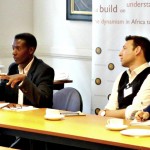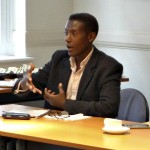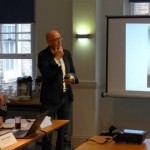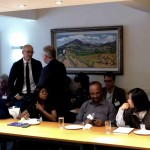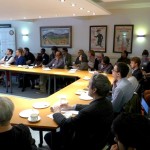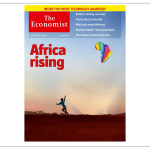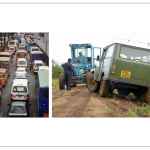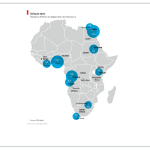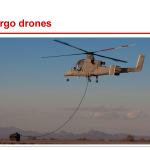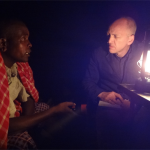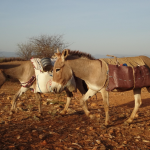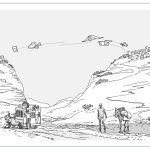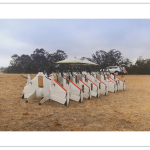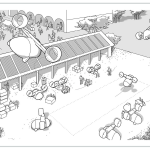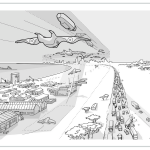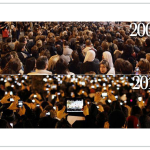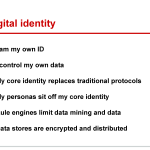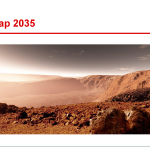On Monday 20th October 2014, ARI hosted speaker Jonathan Ledgard, director of Afrotech, leading thinker on risk, nature and technology and longtime East Africa correspondent for the Economist, who led a discussion on advanced technology in near-future Africa.
“The next decade will be among the most decisive in Africa’s history”
Statistics
- In 2003, Kenyan mobile phone penetration was between 5 and 7%. Safaricom was aiming to reach 20%, but it is now over 90%
- Within two years smartphones with the capabilities of top-of-the-range models today will be available in Africa for about US$30
- The world’s pin code in 2100 will be “PIN 1145” – 1 billion Europeans, 1 billion Americans, 4 billion Africans and 5 billion Asians
- Estimates suggest that over 75% of Africans will be young people as soon as next year
- 200-250 million more Africans will come online in the next five years
- Google spent $270 million on prototype drone development in 2013
- Drones can currently fly at a height of 350m and carry 5-7kg and will likely be able to handle 40kg in 5-7 years
- Mass-produced cargo drones could be bought for as little as US$3,000 by 2022
- In 2013, 351 patents were registered in South Africa; more than ten times that number are registered by Panasonic alone every year
The Journey
Ledgard argues that Africa needs to embrace super-enhanced technology if the narrative of the continent is to change. Connectivity is the key when it comes to new technology and will shape the discussion ahead. Without connectivity of data, people and materials the continent will struggle to achieve prosperity.
At the moment, African economies are highly centralised and commerce revolves around the capital city. Trade between smaller towns is problematic due to poor infrastructure spanning from the capital outwards.
Ledgard introduced the “Red/Blue Flying Robots Consortium”, a spin-off of Afrotech, which aims to develop the first drone trade route in Africa by 2016. The consortium is in discussions with five countries – Namibia, Zambia, Tanzania, Rwanda, and Uganda – with the objective of establishing two trial routes. Drones will be divided between a red route, used by the government health service and non-profit organisations such as Medicins Sans Frontières, and a blue route established exclusively for commercial use.
Ledgard is convinced that e-commerce is on the verge of a breakthrough on the continent. Young men and women, with greater access to smart phones that can facilitate this process, are a highly receptive audience. However, the lack of a developed supply chain offering predictable delivery times has prevented the industry from flourishing. Businesses such as Jumia in Nigeria are an early indication of the potential of the e-commerce sector in Africa.
Ledgard noted that another benefit of drone technology is that it could provide a clean-energy solution to transportation of goods. Drone batteries will be recharged using solar energy, generated at the docking stations, harnessing a largely untapped resource across the continent. Drone routes have the potential to create jobs, in the servicing and repair of vehicles, in administering warehouses filled with goods for delivery, and in the “last mile” motorbike drivers will still be required to deliver the products from drone docking stations to the final address. Ledgard was keen to underscore that the last mile, crucially, remains human.
Ledgard also raised two other technological innovations which have the potential to transform Africa:
- Digital citizenship: All data in Africa is being stored by just three companies. Google has bought large amounts of digital real-estate in Africa very cheaply and young people are not aware enough of the way that their data is exposed and the lack of protection afforded to them. He proposed a digital identity rights charter and public awareness campaign.
- End of traditional currency: In East Africa, m-Pesa has already facilitated payment by consumers to businesses, but the arrival of bitcoin on continent will replace the need for Africans to handle cash for small transactions.
Questions
Q. Nick Jacobs of Highland Cow Software: “Do African governments have the willingness/capacity to deliver the kind of digital identity protection that is needed? And how?”
A. JL gave the example of Open Mustard Seed creating a platform which will enable the individual to control how his or her data is shared online. But he stated that the demand for digital identity protection has to come from the population with government buy-in. Ledgard acknowledged the challenges associated; particularly that companies like Google make money from users’ data.
Q. Richard Darlington of IPPR: “Can technology change politics? What is the democratic potential?”
A. JL reflected on an Afrotech study, which looked at Twitter usage is Lagos, Nairobi and Kinshasa. It revealed that blank spaces, where no tweeting was happening, were in government offices whilst informal settlements, like Eastleigh in Nairobi, produced the most activity. Increased connectivity has the potential to create populism characterised by an increase in violence, criminality and civic conflict – with 2022 the crunch year.
Kim Scriven of the Humanitarian Innovation Fund stated that drones are generally associated with warfare, with political implications of state coercion rather than neutrality. How can this perception be countered? He gave the example of drone usage as part of UN Peacekeeping Mission in DRC
JL commented that the dual usage of drones is problematic as it confuses public perception. How citizens perceive the drones will gradually evolve as they show both an economic benefit and provide life-saving services such as a carrying blood, for sickle-cell patients, to rural areas in Eastern Uganda.
Q. Ekua Amissah of Oxford & Beaumont Solicitors questioned whether the advent of drone technology was what Africa really needs. Would this approach lead to greater dependence on developed countries and where would the drones be built?
JL envisaged that drones would be locally-engineered with the informal sector involved in repairing them. Moreover, with African universities partners in the initiative, there will be local buy-in. He views a local solution as the ideal, and is trying to load the dice in favour of young Africans, but his worry is that it will be outsourced to the Chinese to do it cheaper. He reaffirmed his belief that Africa urgently needs the greater economic connectivity that new technologies can provide.
Three Things to Think About
- Protecting Digital Identity: How can rule engines be utilised to enforce a code of conduct on digital identity?
- Intellectual property rights: Is the current system suitable for Africa? If not, what needs to change to make it work for the continent?
- Hardware hacking: Can this support innovation and create jobs for African youth?
Event photographs:
Jonathan Ledgard’s slides:
Download a PDF of Jonathan Ledgard’s slides
[audiomack src=”http://www.audiomack.com/song/africaresearch/future-africa-flying-donkeys-digital-currencies-and-implanted-devices”]










